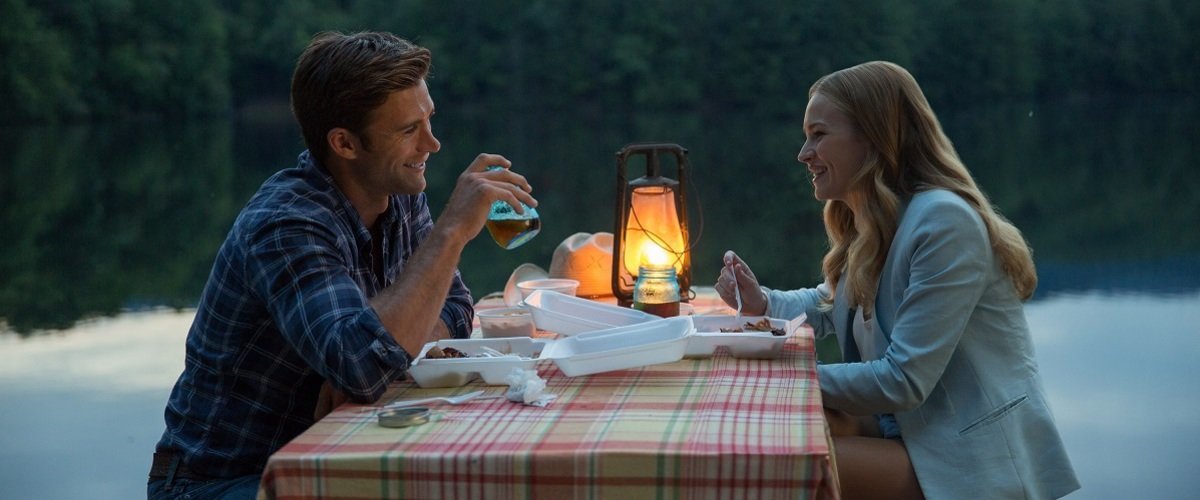
Directed by: Jeremy Garelick
Starring: Kevin Hart, Josh Gad, Kaley Cuoco-Sweeting, Ken Howard, Olivia Thirlby
I wish comedies these days would have enough confidence in themselves not to take the low road. The Wedding Ringer is almost such a comedy. It's a pity, because there are long stretches in which The Wedding Ringer threatens to surprise us and even work. But then the slapstick and gross-out humor are thrown in, and we have an ungainly fit. Nonetheless, this is the most likable Kevin Hart has been on screen yet and he and co-star Josh Gad make for a pretty good team.
Gad plays Doug, an accountant with a good income who is engaged to Gretchen (Cuoco-Sweeting), who is a hottie with a bit of a bitchy streak. He thinks she is way out of his league and still has to pinch himself to make sure he is not dreaming that she agreed to marry him. Doug is a nice guy, but for some reason just doesn't have any male friends. Gretchen has bridesmaids and a maiden-of-honor all lined up, while Doug does not even have a best man in his future. Doug hears about a service run by Jimmy Callahan (Hart), in which Jimmy and some employees pose as Doug's best man and groomsmen for a price. Jimmy arranges the bachelor party and keeps all of the guys' fictional stories of how they know Doug straight. One caveat is that the relationship is strictly business. Once the wedding is done, Jimmy and Doug will not be friends for real. Naturally, we know this is one stipulation that won't be upheld.
Jimmy himself is a rather lonely guy too without any real friends. His business prevents lasting bromances. He has business ethics to uphold. But soon enough, he and his employees have Gretchen and her family convinced that they've known Doug forever. It does not always go that smoothly. Gretchen's sister Alison (Thirlby) is a tad suspicious of Jimmy's whole story about being in the military. And what a strange coincidence that the names of Doug's "friends" are Drysdale, Garvey, and Koufax, all of which the last names of LA Dodger greats. Jimmy goes by the name "Bic", which sounds just like the disposable razor.
The inherent likability of Hart and Gad allow them to mesh well. They are nice, lonely guys who we know will become friends, because each desperately needs at least one. Their budding friendship gives The Wedding Ringer more of a heart than one would expect. But then, there are scenes in which a dog licks peanut butter off of a guy's testicles, a game of football between the guys and Gretchen's family that isn't funny, but violent, and other gross-out gags thrown in as a way for the filmmakers to hedge their bets. They nearly derail the entire movie.
Gross-out scenes like the ones I just detailed are beyond played out at this point. There was a time in which the kid in American Pie accidentally drinking his own semen was at least new and fresh. Now, I don't think there is a bodily fluid that hasn't seen the back of someone's throat. Movies tend to up the ante until the point that such things are uninspired and reek of desperation. What precisely is funny about a guy nearly coldcocked on a muddy football field by a bullying linebacker? And why is it when we see and elderly woman in a comedy we correctly assume she will be foul-mouthed?
But don't despair, there is enough good about The Wedding Ringer to make it a near-miss. Kevin Hart is better when he is given a character to play and doesn't just motormouth his way through a movie. Gad is a sympathetic schlub while Kaley Cuoco-Sweeting remains a sexy, alluring actress even when given a one-dimensional character. Things go predictably in The Wedding Ringer, but it nearly becomes a satisfying comedy. I have seen a whole lot worse in recent years.









